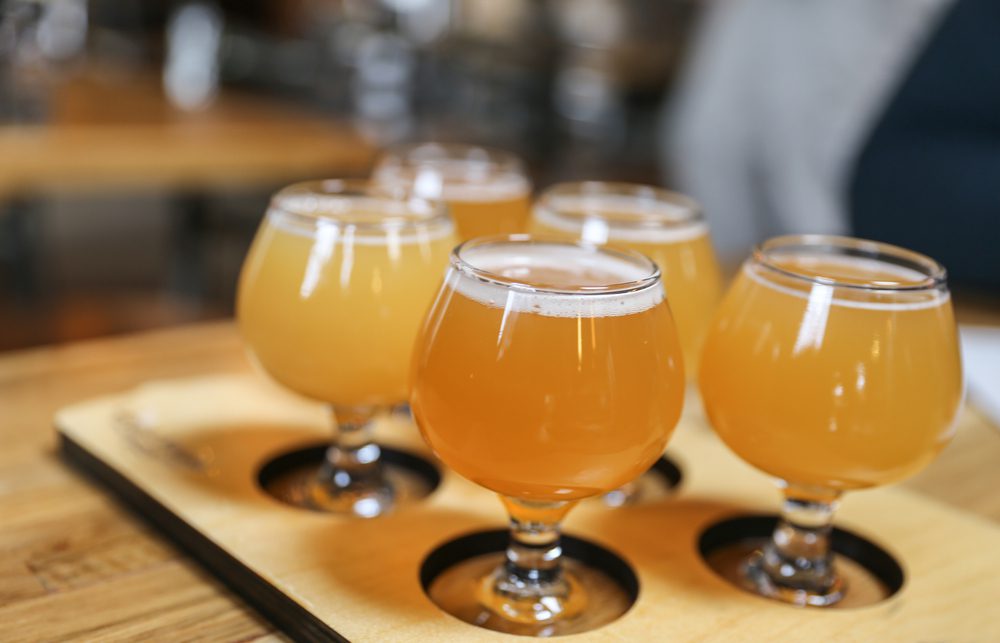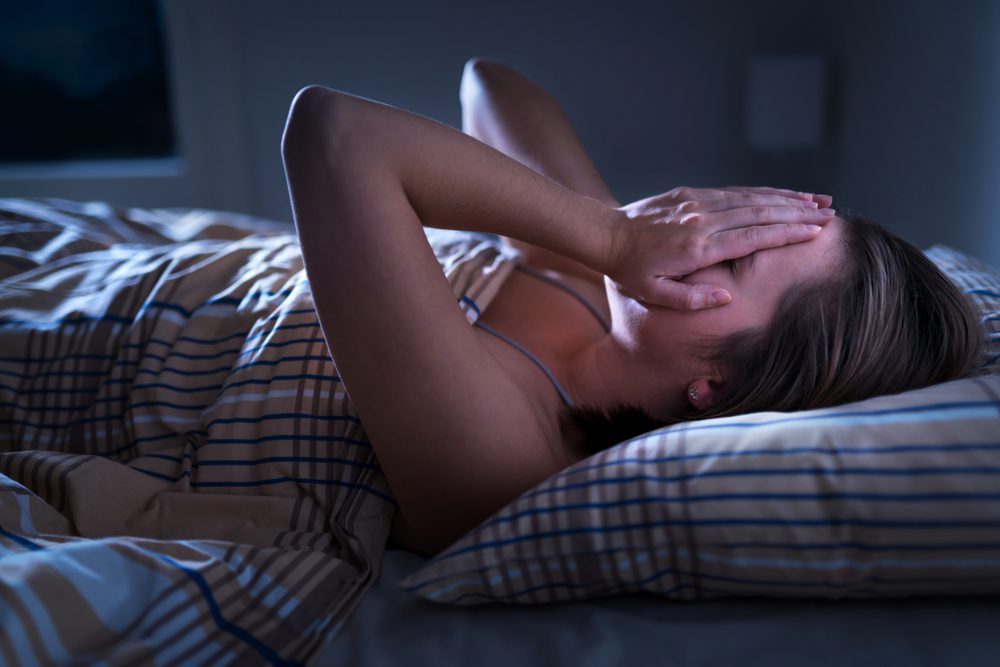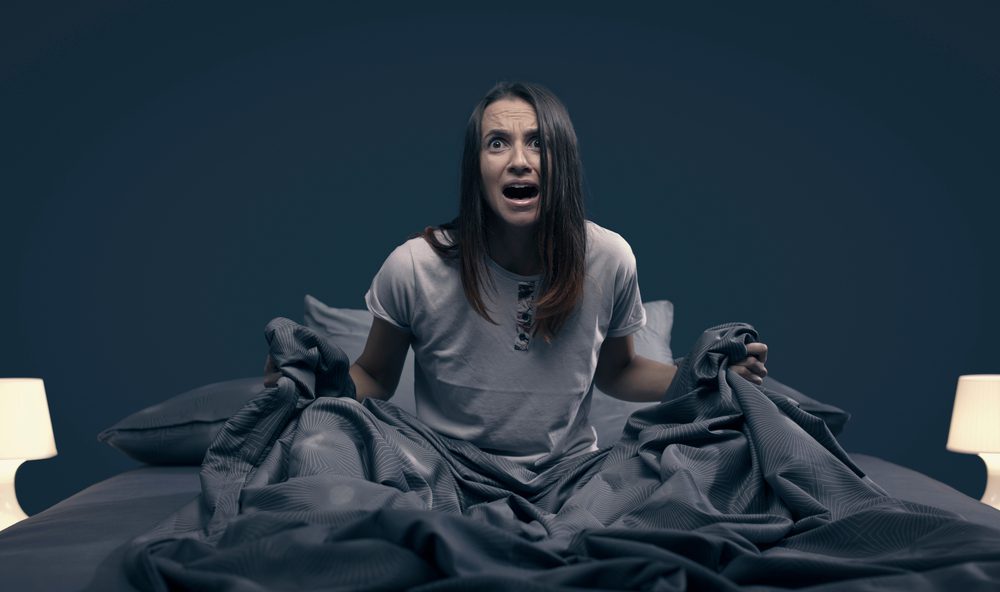Are you wondering what drinking too much alcohol could do to you?
Doing things you regret the next morning, feeling unable to get out of bed, or having 2-days-long migraines – these are the most common ways alcohol can affect us. If there’s a rule of thumb we can all agree on here, it’s this: drinking is all fun and games until one point.
And usually, the fun part lasts much less than the tragic aftermath which usually includes painful hangovers and guilt for what we’ve done.
Like all good things in life, alcohol also has a dark side – one that can give us some really strange side effects like beer potomania (see below).
Now, before you go on with your daily glass of wine, read on to find out the weirdest ways it can affect you.

Beer potomania
Are you a beer enthusiast? If so, you might also be at risk of developing this peculiar condition. Although it’s very rare, beer potomania can reduce the sodium in your blood to life-threatening levels – a side effect called hyponatremia.
The most common symptoms of this illness are headaches, fatigue, confusion, and nausea. Note that these are also the usual signs of a hangover, so if you’re drinking high amounts of beer every day, it might be time to get a check-up.
Low body temperature
Few things are better than taking a sip of whiskey or vodka after spending some time outdoors. Aside from the great flavor, it also warms you up instantly, right?
Well, it may feel like it – but inside your body happens something different. Alcohol makes you feel warm temporarily because it boosts the blood sent to the capillaries (the thin blood vessels right under your skin). However, this effect actually lowers your core temperature and you don’t even realize it!
What’s worse, alcohol reduces your physical ability to shiver, which is the main mechanism your body uses to warm up, as shown in this piece of research from the Journal of Wilderness Medicine.
Unhealthy cravings
There’s a reason why so many people take a few sips of alcohol before mealtime: it makes them hungry.
In fact, this study published in Nature Communications analyzed rodents’ behavior after consuming ethanol (the basic ingredient for any alcoholic beverage). It only took three days of alcohol consumption until the rodents increased their food intake considerably.
This is also a neurological trick, though. Ethanol increases electrical hyperactivity of the brain area responsible for hunger – in simple terms, it gives you the illusion that you need more food than your body actually requires.
And when alcohol-induced hunger strikes, it’s almost never for salads and fresh fruit, but rather greasy burgers and fast food.
Diarrhea
By now, we’ve figured out that alcohol can bring many neurological changes, but what some people may not have noticed is just how much it affects the digestive system.
Recent reports published in the journal Addiction Biology labeled alcohol as an inflammatory substance. Because of this fact, any alcohol intake can irritate the gastrointestinal tract; furthermore, it also affects the normal water absorption process, which leads to those unexpected bathroom trips.
However, the most concerning part is that consuming alcohol regularly kills your beneficial gut bacteria, which are essential for proper digestion.

Insomnia
You’d think that alcohol can help you sleep better – or fall asleep easier – and many times it can trigger that effect. However, consuming alcohol daily even in small quantities can affect the quality of your sleep, especially the deep sleep that’s essential to help our body and mind recover.
According to this Finnish study published in JMIR Mental Health, moderate alcohol consumption can reduce sleep quality by up to 24%. Of the 4,000 tested subjects, those who were drinking more than two beverages a day reported poor deep sleep quality by up to 40%.
Why? Well, alcohol is working as a sedative: the more your blood alcohol concentration increases, the sleepier you’ll get. However, this sedative effect is only working for up to three hours; afterward, the concentration levels decrease drastically causing your system to turn back on. Therefore, you’ll wake up in the middle of the night from your deepest sleep as your confused body is trying to regain internal balance.
Red nose/cheeks
This side effect is always depicted as a funny sign of alcohol consumption, especially on the big screen. But why does it happen?
When you’re drinking alcohol, the blood vessels in your extremities become dilated; for some people, this turns their red nose, especially if they already have rosacea.
Rosacea is a skin condition that might make it seem like you’re blushing along with small bumps on your face. Many people struggle with this illness without knowing; if you think you’re one of them, you can check out my in-depth post about rosacea right here.
Hives and/or stuffy nose
Alcohol allergies are fairly uncommon these days, but many people can be sensitive to other ingredients found in some beverages.
Mark Rood, MD, a physician at Cleveland Clinic, explains that ‘the most common reactions to beer are to types of grains, modified grain proteins hop, yeast, molds or barleys. Sensitivities are also possible to the additives that are present in some beers, including sulfites, sodium benzoate, or tartrazine.’
Additionally, the American College of Allergy, Asthma & Immunology also warns that yeast, histamines, and sulfites can trigger allergic-like reactions in some people. The most common signs of a potential intolerance to one of these ingredients are local itching, wheezing, or nasal congestion.
Nocturnal enuresis
Nocturnal what? In simple terms, this medical diagnosis refers to those embarrassing incidents of wetting the bed.
Normally, our system is very well built to send persistent signals when our bladder is full; this mechanism is exactly what wakes us up in the middle of the night to use the bathroom. Since alcohol can affect the functionality of antidiuretic hormones, which are responsible for urine production, your body just keeps making urine without setting off the need-to-go alarm.
If you drank more than usual or if you’ve been consuming beverages rich in caffeine, you may wake up hungover on a wet bed.

Nightmares
Multiple pieces of research published in Alcohol and Alcoholism have proven that night terror is a very common side effect in alcoholics, especially during times of withdrawal.
The research, which involved both alcoholics involved in withdrawal programs and healthy individuals, revealed that the first group had poor sleep quality. Even when they did sleep, these patients reported significantly more nightmares or negatively toned dreams than others.
Anxiety
Anxiety and depression have been diagnosed considerably more over the past years due to the COVID-19 pandemic. Unfortunately, though, these problems have been commonly encountered by alcohol consumers forever.
Unfortunately, alcohol and depression often go hand in hand as one symptom triggers the other. IF you think you need help, please reach out to a close one or a specialist as soon as possible.
Staying healthy
Whether you like an occasional glass of wine in the evening or you’re a huge alcohol enthusiast, you can always find balance again to live a healthy, happy life. Here at Wellness Captain, we’re dedicated to helping you find simple, accessible ways to improve your lifestyle in the long run by creating better habits in a fun, engaging way.
Drinking alcohol moderately is the best way to go! This is why you should also make sure to add healthy drinks to your day to sustain your health!













